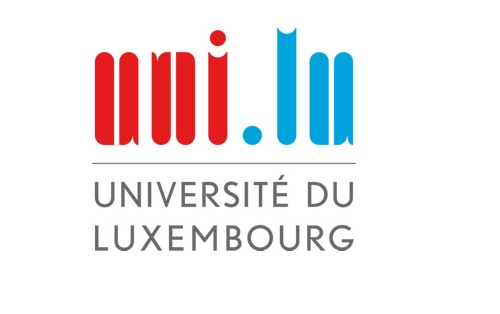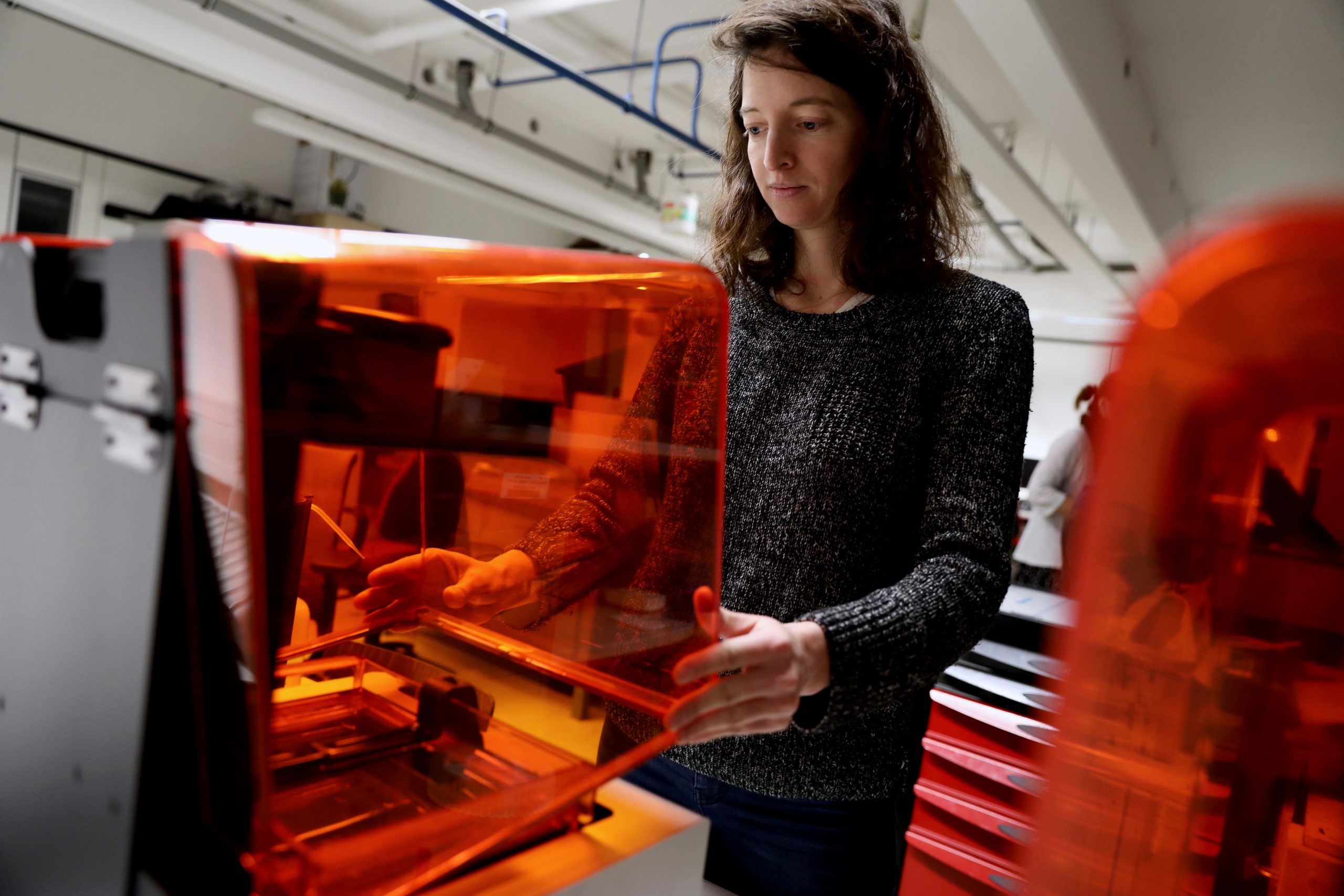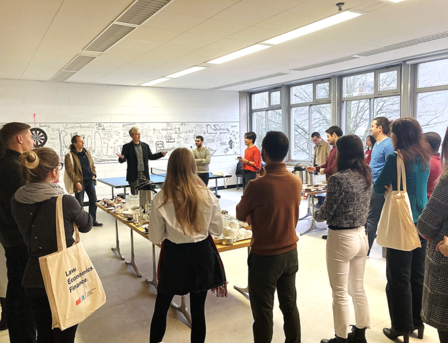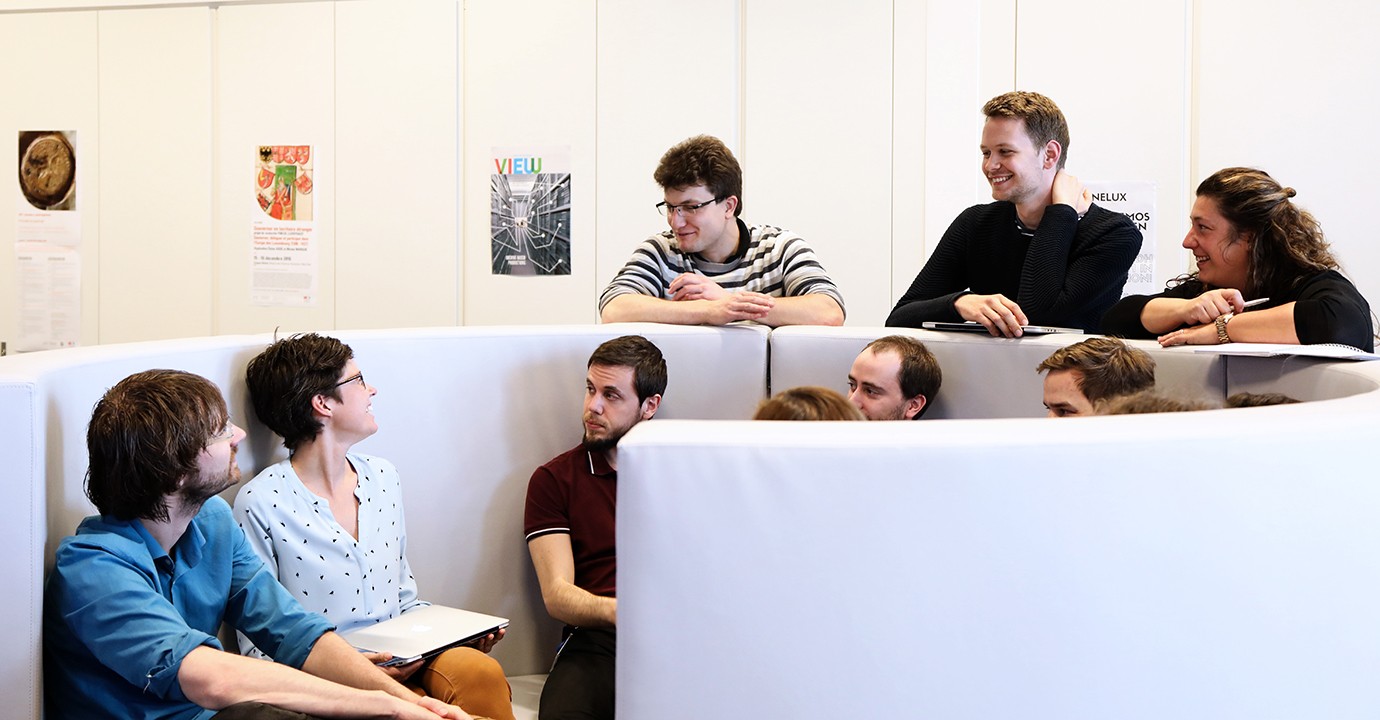University of Luxembourg
The University of Luxembourg is strongly research-oriented. It has a distinctly international outlook and its ambition is to produce top class research output, addressing society’s challenges. It conducts cutting-edge research across multiple fields in its three faculties and three interdisciplinary research centres.
The University counts about 7,000 students as well as 1,700 researchers working in three faculties and three interdisciplinary centres.
Research focuses on two cross-disciplinary areas – the advantages of the digital world as well as health & biomedicine – and six pillars of excellence: Computer Science & ICT Security, Materials Science, European and International Law, Finance and financial innovation, Educational sciences, Contemporary and digital history.

Discover the University of Luxembourg’s doctoral schools
Doctoral School in Science and Engineering
The Doctoral School in Science and Engineering offers seven programmes including Mathematics and Applications, Physics and Materials Sciences, Civil Engineering Sciences, Mechanical/Electro and Communications Engineering, Computer Science and Computer Engineering, Systems and Molecular Biomedecine, and Computational Sciences.
Doctoral School of Law
The Doctoral School of Law fosters an open-minded approach to legal analysis, going beyond the boundaries of national jurisdictions, to promote comparative cross-disciplinary research, within a multilingual environment (English, French and German) and an international academic team.
Doctoral School in Economics, Finance and Management
The Doctoral School in Economics and Finance focuses on two main topics: Economics (regional development, economic integration, environment policies, international economics, labour economics, macro finance, macroeconomic growth and dynamics) and finance (quantitative finance, risk management and financial governance, corporate finance, behavioral finance, law and finance, Islamic finance).
Doctoral School in Humanities and Social Sciences
The Doctoral School in Humanities and Social Sciences offers four research programmes in Humanities, Education, Social Sciences, and Psychology.




Discover the University of Luxembourg’s research centres
Luxembourg Interdisciplinary Centre for Security, Reliability and Trust (SnT)

The Interdisciplinary Centre for Security, Reliability and Trust (SnT) conducts internationally competitive research in information and communication technology (ICT) with high relevance creating socio-economic impact. In addition to long-term, high-risk research, SnT engages in demand driven collaborative projects with industry and the public sector. Therefore, the centre has set up a partnership program with now over 45 members, where it develops strategic areas addressing challenges confronting the industry and the public sector in ICT. These resulting concepts present a genuine, long-lasting competitive advantage for companies in Luxembourg and beyond.
Luxembourg Centre for Systems Biomedicine (LCSB)

The LCSB is accelerating biomedical research by closing the link between systems biology and medical research. Neurodegenerative diseases like Parkinson’s disease and description of diseases as networks are at the focus of LCSB’s research. The Centre is pioneering the way for a predictive, preventive and personalised medicine.
Luxembourg Centre for Contemporary and Digital History (C²DH)

The Luxembourg Centre for Contemporary and Digital History (C²DH) is a research centre of the highest academic excellence for the study, analysis and public dissemination of contemporary Luxembourgish and European history. It promotes an interdisciplinary approach with a particular focus on new digital methods and tools for historical research and teaching, in three interrelated fields of interest: questions related to the contemporary history of Luxembourg from transnational perspective; reflection on the methodological and epistemological challenges of history in the digital age; promotion of multimodal and digital literacy in academic research and teaching at the University of Luxembourg.
Luxembourg Centre for European Law
The Luxembourg Centre for European Law (LCEL) is the University of Luxembourg’s new Interdisciplinary Centre. Formerly the Max Planck Institute for International, European and Regulatory Procedural Law (MPI), it was integrated into the University on 1 January 2024. The LCEL’s mission is to combine academic excellence with research with impact, further elevating both the University and the country to the forefront of European legal expertise.
The LCEL will focus on the interdisciplinary field of European law and use to full capacity its proximity to key EU institutions in Luxembourg. The new IC will combine academic excellence and strategic research with impact. The IC will reflect in its strategic focus the European political agenda of a dual (digital and green) transition and topics related to European sovereignty.
